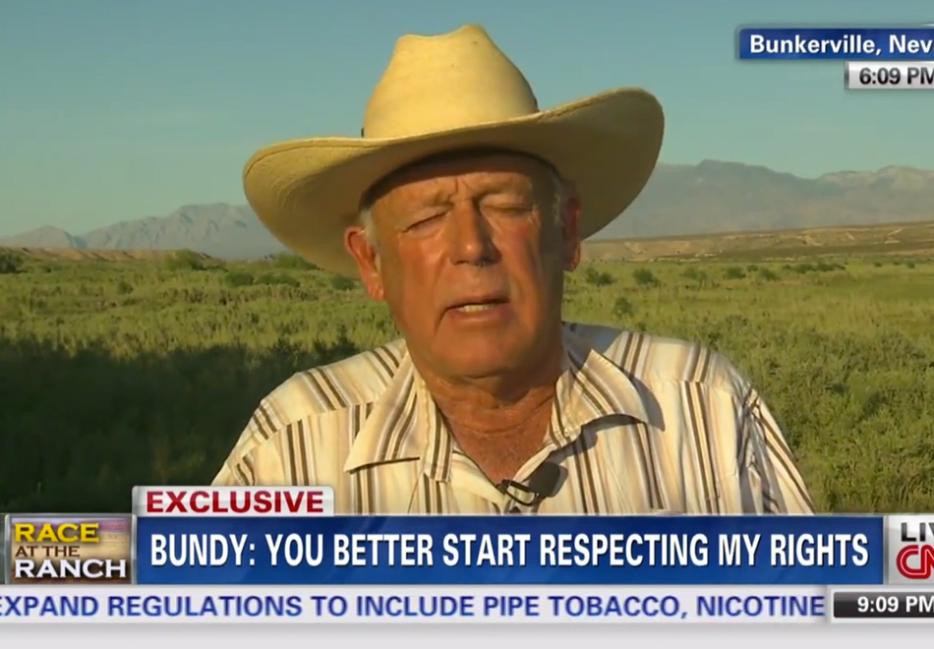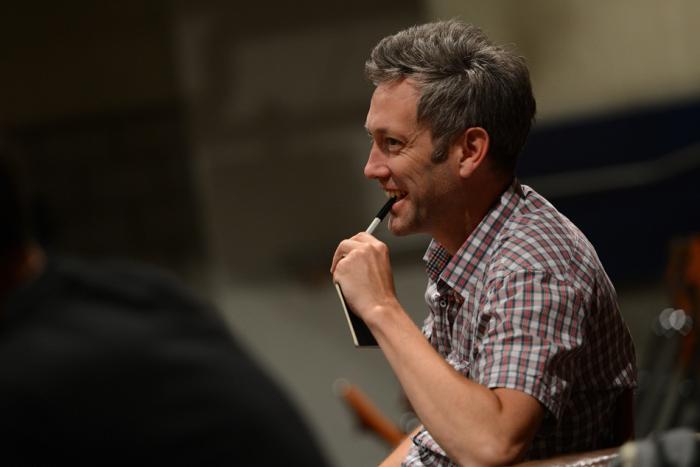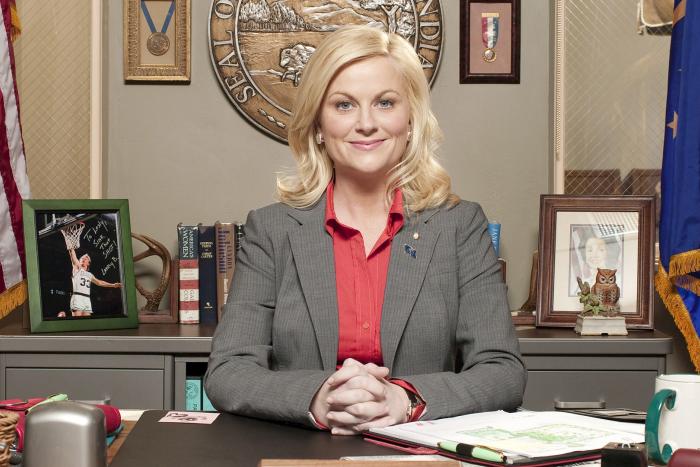By this point, you’ve certainly heard about Cliven Bundy, the Nevada rancher standing up to an oppressive jackbooted federal government in the name of the solemn principle that cows should be fed at other people’s expense at no cost to their owners. Bundy, it turns out—who could have predicted?—is also crazy racist. That Fox News spent the last week trying to make a hero of the man is just one part of this tale, and one we’ll have to return to at some point.
But for now, let’s dwell on Bundy’s actual words. First of all, the text itself: as Bundy told a crowd of supporters in reference to black people, in what was part-sermon, growing-part-Klan-rally:
“They abort their young children, they put their young men in jail, because they never learned how to pick cotton. And I’ve often wondered, are they better off as slaves, picking cotton and having a family life and doing things, or are they better off under government subsidy? They didn’t get no more freedom. They got less freedom.”
New York Times reporter Adam Nagourney told Politico he was surprised none of Bundy’s supporters tried to get him to change the topic, nor did anyone try to “clarify” his remarks later. This was, to all appearances, just a normal thing for Bundy to say and for his supporters to hear.
That Bundy’s words bear no relationship with the reality of either slavery or the hundred years of Confederate apartheid that followed the Civil War could go without saying, but shouldn’t. In her book The Warmth of Other Suns, Isabel Wilkerson delves into the reality of the lives of blacks who migrated from the Old South to America’s coasts and industrial cities through the 20th century.
(Wilkerson’s book is easily one of my favourite nonfiction books of the last five years, if not my favourite—a simply stunning work of history and journalism.)
Needless to say, if it ever troubled someone like Bundy to ask actual living black people who left their lives of picking cotton whether they were better off (who still exist, and could clear this up for him!), they would give a unanimous and obvious answer.
Do we need to go into the details of terrorist states like Mississippi, where Governor James K. Vardaman proclaimed in 1907, “if it is necessary every Negro in the state will be lynched; it will be done to maintain white supremacy”? Or is it sufficient to know that even far from the halls of power white men were able to casually use lethal violence against southern blacks without consequence until the 1960s?
Bundy can talk about “a family life and doing things” as if that represented the equilibrium state of slavery and Jim Crow, but of course the reality for southern blacks was their families living under the continual threat of violence and reality of poverty. That’s why so many blacks left the south the moment a changing national economy—including, crucially, rail lines leading to the relative safety of cities where the federal government would create ghettos and slums—allowed them to.
Parents fled with their children, young men who’d run afoul of a local petty tyrant escaped with the hope of living long enough to start families, and after World War II the nascent southern black professional class left to go places their skills would be allowed to be used.
Wilkerson’s book is, of course, just one of a number of important histories of the African-American experience. Bundy’s utterances brought it to mind for a number of reasons, but primarily because he seems to have never considered that blacks did in fact weigh their chances of freedom in the south against the alienation they’d face in new northern and coastal cities—and found the formula of justice always solved the same way, in favour of leaving.
It was also, as Wilkerson puts it early in her book, “the first big step the nation’s serving class ever took without asking.” It was an assertion of the right to act without a white person’s permission. Maybe that’s what Bundy, and his silently assenting followers, miss most.






